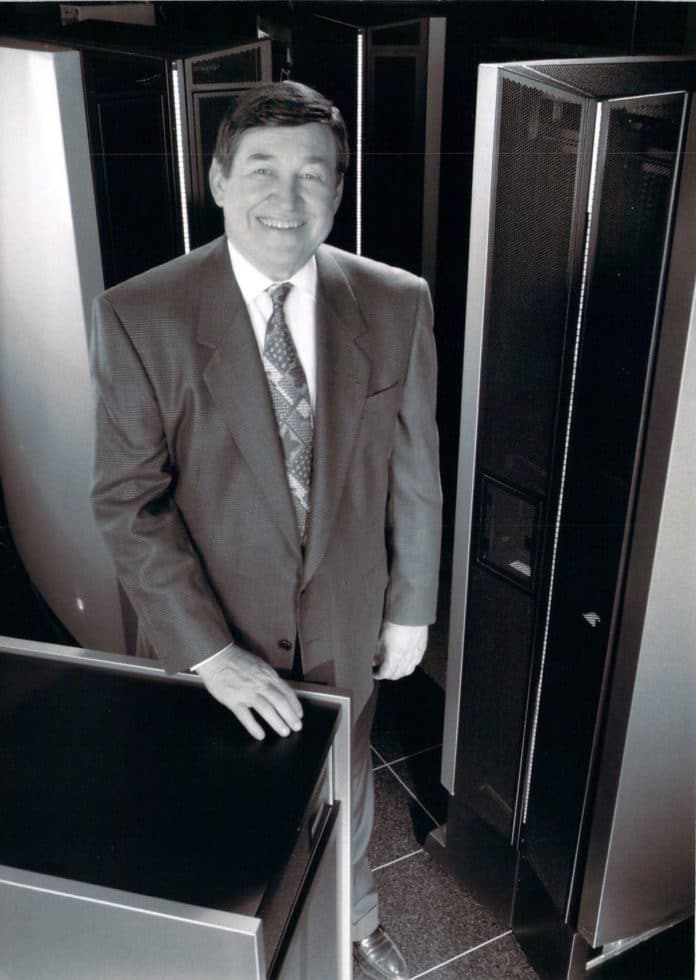Who was Max Hopper, many may ask?
First, he was an information technology giant who was key to pushing American Airlines to the forefront of corporate America in the 1980s.
He was a great guy who is considered the blueprint for an innovative modern-era CIO and a founding father of using a company’s IT assets to seek a competitive advantage over competitors.
He was also helpful to me when I joined my first computer magazine, Datamation, in 1987. Hopper was already a legend for his work developing Sabre, the computer reservation system used by airlines, railways, hotels, travel agents and other travel companies. Sabre is now an independent information technology company based in Southlake with more than 10,000 employees. Yeah, Max helped do that.
My East Coast-centric magazine editors wanted me to get to know the man because, to them, he represented the future of computing. Either that or they couldn’t believe some guy from Texas was really that smart. I mean, he didn’t go to either Columbia or NYU. Guess what, the University of Houston grad was that smart.
Hopper was back in the news again last week, though he had died, suddenly, of a stroke in 2010, at 75. Apparently, while being a world-renowned innovator and technological genius, he neglected to file a will. So when he died, his considerable assets of $19 million had to be managed. Hopper’s widow, Jo, and her family filed suit against JP Morgan Chase & Co, which had been hired to administer the estate. A Dallas jury recently ordered JP Morgan to pay the widow $4 billion (things are bigger in Texas) in damages. JP Morgan has said it believes the verdict will be overturned.
That made the news and reminded me of Hooper and my days at Datamation, a publication around since the birth of the modern computer era. But, based on the East Coast, it focused on banks and other financial institutions that had long used those giant, mainframe computers for a variety of tasks, but primarily accounting and other back-office uses.
In the real world, there were a few projects here and there, but few companies had really found the secret sauce to make these investments in technology work to their advantage beyond accounting applications. Hopper did.
Hopper, who had worked at Shell and H. Ross Perot’s EDS, came to American Airlines in the 1970s and began work as director of Sabre, transforming it into a corporate tool that gave American a distinct advantage over its grousing rivals. Hopper brought computing from the back office to the front office. Now companies like Uber base their whole company on technology and innovation. That’s what Max did.
Hopper’s relationship with management is often mirrored in the modern startup company. He had the support of a CEO at American, Robert L. Crandall, who liked Hopper’s ideas and helped fund some that seemed “out there” at the time.
I initially caught up with Hooper in the 1980s and my editors were fascinated by him. Nearly every story they assigned me, they’d say, “See what Max Hopper has to say about TCP/IP,” or “Is American going to buy those newfangled 386 chip-powered PCs or is that just too much power?”
I sometimes did – and often didn’t – ask him some of those burning life-altering questions, and he was always helpful and insightful. But Max was way beyond questions like that. He was three or four steps ahead of TCP/IP or 386 chips. But he was humble, occasionally funny and certainly didn’t have the typical dictatorial attitude of most IT managers. He was from Lufkin and that small-town upbringing still shined through any corporate veneer.
If you think Hopper didn’t have any influence on your life, think again. If your company has a common corporate desktop, that was one of Hopper’s late 1980s innovations. He helped American develop InterAAct, a desktop network at American Airlines that integrated and standardized many of the applications used by the many workers at the airline. Corporate America quickly followed Hopper’s lead.
In a CIO magazine profile, James I. Cash Jr., a professor at the Harvard Business School, said Hopper’s self-effacing demeanor helped him gain his boardroom backing for his projects. That, and the fact – key for boardroom types – that most of his projects and ideas paid off.
He was farsighted in the corporate realm, but he forgot to file a will. And it made me think about him again.
Robert Francis is editor of the Fort Worth Business Press.






